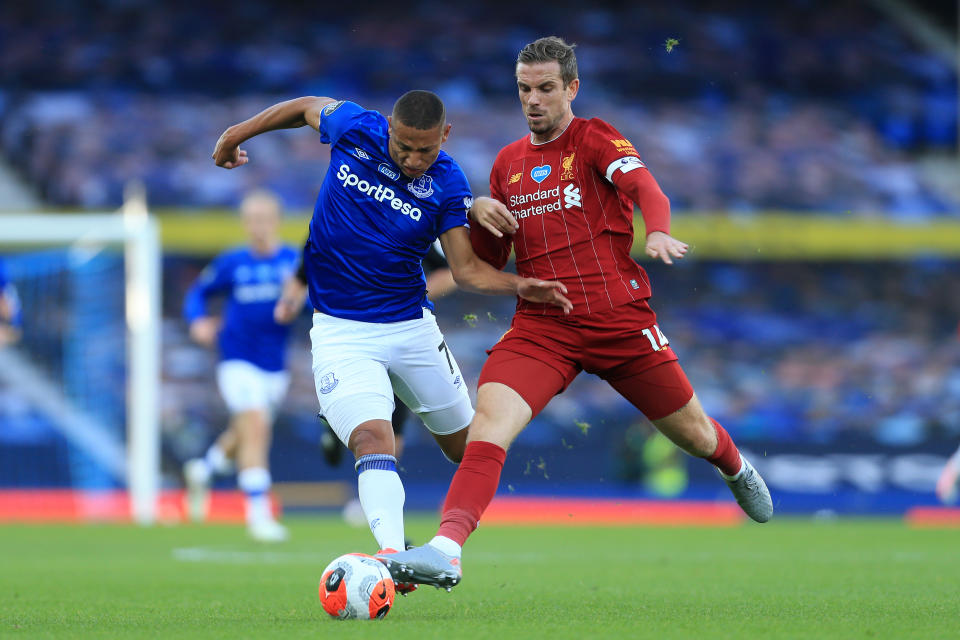EPL preview: With COVID compressing the schedule, this could be the most competitive season ever
If 2020-21 was a normal season, the Premier League would have already played four matches by now. Euro 2020 would have been played over the summer, preseason tours would have brought Europe’s biggest teams to the United States, and players would be settled at their new clubs with the transfer deadline in the rearview mirror.
Of course, very little about 2020 has been normal. Due to the impact of the coronavirus, the Community Shield — the traditional curtain-raiser for the Premier League season — took place just one week after last season’s Champions League Final.
The Premier League kicks off again Saturday, a matter of hours after some of its biggest stars have returned from international duty. The preseason is practically non-existent. Top-flight players have never had so little rest and preparation time heading into a new season.
And, unfortunately, they will barely get a moment to come up for air between now and next summer.
The 2020-21 Premier League campaign will, if all goes to plan, conclude on May 23, 2021, in order to give ample preparation time for the delayed Euro 2020 tournament, which will commence three weeks later. This means the 38-game season will be condensed by nearly a month.
Fixture congestion is a common complaint among Premier League managers, and they are about to be stuck in gridlock.

The authorities are doing what they can to ease the congestion. The winter break, which was successfully introduced last season, will not take place. The FA Cup is scrapping replays, while the League Cup is reducing its two-legged semifinals to single matches.
However, when cups and international breaks are factored in, every single midweek throughout the season has been allocated to a match day. Every single one.
Nowhere is the fixture pileup more evident than with Tottenham, whose opening game Sunday will be followed by a grueling midweek trip to Bulgaria for a Europa League qualifier and then a trip to Southampton a few days later. All told, Spurs face the potential of nine games in 20 days through September and October. Jose Mourinho will almost certainly have to create two separate starting XIs to survive this early onslaught. Harry Kane, a traditional slow starter in a domestic campaign, will quite literally need to hit the ground running.
Due to their deep runs in last season’s European competitions, the Champions League and Europa League, Manchester City and Manchester United have both been granted exemptions to miss the opening weekend of Premier League fixtures. United and City will instead begin their campaigns on Sept. 19 and 21 respectively.
This reprieve may be welcome for the Manchester teams, but it also means they will have to catch up during a season where there will be few viable opportunities to do so.
In 2018-19, the most recent undisturbed campaign, City played 60 games. If they had reached the Champions League final, it would have been 63. The idea of playing so much in such a condensed space will likely give Pep Guardiola anxiety; after all, his lack of depth defensively is a key reason City ceded the most recent Premier League title to Liverpool.
Ultimately, the fixture pileup could have a detrimental effect on the Premier League’s representatives in Europe. Bayern Munich played just 52 games last season while winning the treble. The additional rest afforded by a 34-team Bundesliga will put Germans teams at a distinct advantage.
A jam-packed schedule also suggests there will be a lot more parity within the Premier League. Given the circumstances, it seems less likely that Liverpool or City will break away from the pack and make the title race a foregone conclusion by February.
The Premier League’s behemoths will be playing more matches, and will be spreading themselves even thinner. Teams chasing them will generally have a much better chance of keeping up, and bridging the gap of financial disparity. Liverpool in particular may struggle to maintain their furious pressing game with so few respites from the action.
Their crosstown rivals Everton, meanwhile, have no European commitments, and are clearly committed to spending big this summer. Carlo Ancelotti’s side may not be crowned champions, but they will have an opportunity to sneak into the top six spots. The same may be said for Wolves, who will also be free of the European competitions that arguably hampered their domestic ambitions last season.
Another blow to the richer teams is the vote against allowing five substitutes in the 2020-21 season. Such a rule would have benefited deeper squads who could spread out game time across competitions. Without five subs, it’s more conceivable that lower-half teams will have fresher legs than the big boys.
Of course, there remains little financial parity across the Premier League. It’s very much a case of the haves and the have-even-mores. And the bookmakers are certainly positioning Man City and Liverpool as outliers in the title race.
However, when fixture congestion turns to fixture gridlock, it’s the lesser teams who may find it easier to weave through traffic.
More Premier League 2020-21 previews:

 Yahoo Sport
Yahoo Sport 






































